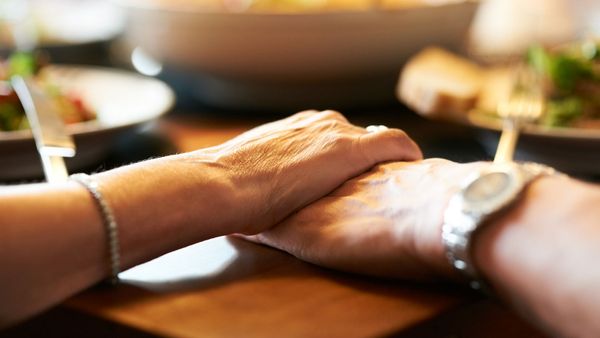Since Orloff literally wrote the book on empaths, we asked her what were the most common traits of being an empath. The following are adapted from her book.
1. Empaths are extremely sensitive, much more so than a regularly sensitive person. They are good listeners, naturally generous and excellent nurturers. However, they also get their feelings hurt very easily.
2. They take on other people's emotions as their own. Empaths don't just pat someone on the back and say, "There, there." They absorb the emotions (both positive and negative).
3. They can be somewhat introverted, so some may avoid crowds or at least limit the amount of time they spend in them. Too much chaos is overwhelming for empaths.
4. They are very intuitive, so they instinctively know things without any sort of conscious reasoning. Orloff says that it's critical for empaths to develop this skill, so that they can better acknowledge gut feelings about people and avoid traumatic relationships.
5. Empaths require alone time to "recharge their batteries." This is because being around people and feeling all their emotions to the nth degree is pretty draining. Empaths like to have control over when they can leave a place or event, so they often prefer to take their own cars. That way, when the experience gets to be too much, they can exit quickly.
6. They may have a hard time with intimate relationships because they want to keep their own identity firmly established. It's also hard for them to have too much togetherness.
7. "Energy vampires" are drawn to empaths like a moth to a flame – people like the Drama Queen, the Victim and the Chronic Talker (the latter in particular is most detrimental to empaths.) Such emotionally draining people can make empaths feel unlovable, unworthy and deplete their peace of mind. "There is a toxic attraction between an empath and a narcissist. Narcissists are self-absorbed and full-blown narcissists have empathy deficient disorder, so they can't reciprocate the love and caring of an empath," Dr. Orloff explains.
8. Empaths love being out in nature because it helps them replenish. "The natural world nourishes and restores them. It helps them to release their burdens and they take refuge in the presence of green wild things, the ocean or other bodies of water," Orloff writes in her book.
9. They often experience sensory overload, thanks to excessive smells, noise or chatter.
10. They tend to give too much thanks to their huge hearts. Nice, but lesser or non-empathic people will reach out to a person in need. However, empaths absorb the sad situation, which causes them to become upset and emotionally drained.
A person doesn't have to check off all 10 of those items to be considered an empath. If you have three or more of these traits, chances are you've found your niche.


